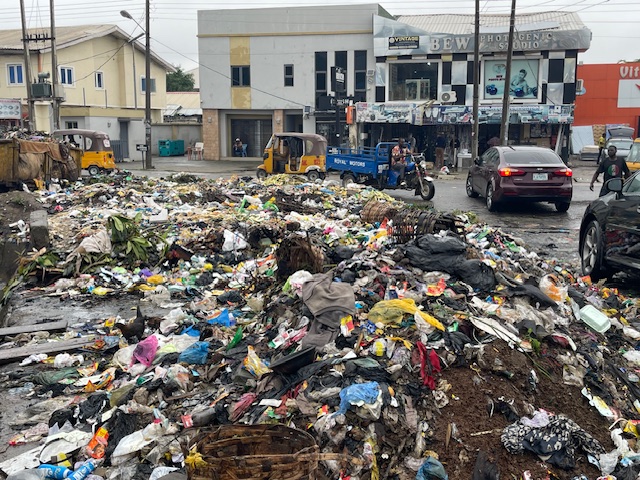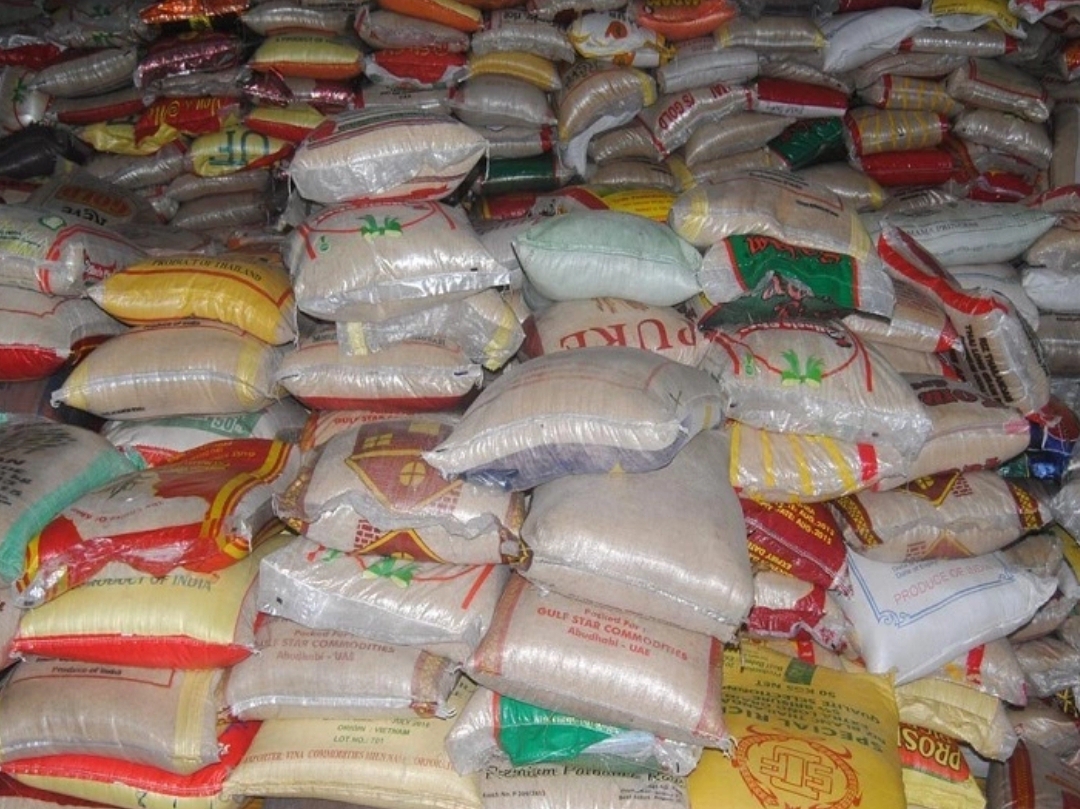America’s deportation of migrants to third-party nations that are willing to accept them in exchange for diplomatic or economic incentives, which is dubbed by critics as proxy repatriation, has raised profound ethical, legal, and geopolitical questions. With nations like South Sudan, Eswatini, Uganda, and Rwanda entering into deportation agreements with America, the practice represents an aggressive blend of immigration enforcement and transactional foreign policy, NGOZI EGENUKA reports.
Desperate to enforce his stance on illegal immigration, American President Donald Trump has made formal and informal offers to over a dozen countries, predominantly in Africa, Central America, and parts of Asia, asking them to accept migrants that are neither their citizens nor necessarily linked to them by ethnicity, culture, or political alliances.
Reports claim that the five West African leaders who visited the White House in July were asked to consider accepting deportees from unrelated countries, such as Venezuelans, Cubans, Yemenis, and others whose repatriation has been refused or delayed by their home countries.
Nigeria was not left out of the offer. However, Foreign Minister Yusuf Tuggar publicly rejected the idea, stating: “It will be unfair for Nigeria to accept 300 Venezuelan deportees.” He pointed to Nigeria’s already massive population, adding that the American visa restriction policy was issued as a form of political coercion.
In contrast, countries like Uganda, which already hosts Africa’s largest refugee population, have agreed to resettle migrants under certain conditions, such as the exclusion of criminal deportees. Rwanda and South Sudan have also accepted limited numbers, raising concerns among human rights organisations over the safety and legal clarity of such deals.
The strategy of third-country deportation, often without giving migrants the chance to contest the potential dangers they might face, has sparked strong pushback from international legal experts, the United Nations, and humanitarian organisations.
The June 2025 American Supreme Court ruling that upheld such deportations has been one of the most diverging decisions of Trump’s second term. Other justices called it “a gross abuse,” while rights advocates argued it violated international conventions, including the principle of “non-refoulement”, which prohibits sending individuals to countries where they may be persecuted.
Moreover, many of the receiving countries, such as Rwanda, Eswatini, and South Sudan, have themselves been scrutinised for poor human rights records, raising further doubts about the well-being and legal protections of deportees once relocated.
Despite the assertiveness of the Trump administration, several African nations have resisted being drawn into America’s migration crackdown. Liberia, Senegal, Mauritania, Gabon, and Guinea-Bissau have either denied receiving deportation requests or downplayed discussions altogether. Liberia’s Foreign Minister, Sara Nyanti, categorically denied such negotiations, stating: “We have not had discussions about deportees or criminals coming to Liberia.”
So far, the deportation has been done on a small scale; however, experts warn that it could signal a larger shift in how powerful countries manage migration pressures.
The Head, Africa Programme, Chatham House, Alex Vines, observed that the Uganda agreement “is a lot more ambitious,” and may serve as a model for future American deals. As other countries, including Honduras, Costa Rica, and even Paraguay, join in the deal, the pattern suggests the Trump administration is crafting a global network of reluctant partners in deportation.
This clampdown on immigrants has enhanced Immigration and Customs Enforcement (ICE) operations through raids in sanctuary cities, expanded operations in schools and hospitals, and stepped-up deportation flights. It has had economic ripple effects in agriculture, construction, and hospitality industries that depended on undocumented labourers.
While the Trump administration boasted about deporting 140,000 individuals as of April 2025, independent estimates place the number significantly lower, highlighting possible exaggeration for political gain.
This new pattern has raised critical questions. Mr Vines said the number of migrants may be small for now, but it shows the direction of travel. “The world may be witnessing the early stages of a controversial new global migration order, one that will test the limits of sovereignty, morality, and international law in equal measure,” he said.
A Senior Research Fellow, Division of International Law, Nigerian Institute of International Affairs (NIIA), Dr Philippa Osim-Inyang, explained that under international law, the legal framework that is most relevant to deportation and transfers is the Principle of Non-refoulement, codified in the 1951 Refugee Convention and its 1967 protocol.
“The principle prohibits states from sending individuals to countries where they may face persecution, torture or threat to life and freedom,” she said, adding that the principle has become part of the customary international law, which means it is binding on all states irrespective of whether they have become signatories or ratified the convention and its protocol.
“The history of deporting people to third-party countries that aren’t the deportee’s state of origin is a more complex issue. Nigeria’s position, as clearly articulated by the Minister of Foreign Affairs, is that we cannot accept deportees from other countries. Our population is already huge and we face indigenous developmental issues, security and humanitarian concerns, so accepting such deportees would be overstretching our capacity and compromising our national priorities,” she said.
She noted that this is not a matter of hostility, but one of sovereignty and responsibility, adding that each state must manage migration in ways that align with its resources and obligations.
Domestically, Nigeria’s Immigration Act empowers the Minister of Interior to order deportations in line with national security and public interest. What it does not permit is the arbitrary imposition of foreign nationals on Nigeria by a third state. Such arrangements would run contrary to the country’s sovereign rights to determine who enters and who remains in the territory.
Dr Osim-Inyang said that, in general terms, while Nigeria remains committed to upholding its international obligations towards genuine refugees and asylum seekers, it should firmly reject attempts by other countries to shift their deportation responsibilities to it.
“It is not supported by international conventions. So, international cooperation on migration must be guided by fairness, shared responsibility and very importantly, respect for state sovereignty, not by unilateral decisions that are placing further burdens on already challenged states in the global south,” she added.
However, for the Director General of the Institute of Peace and Conflict Resolution (IPCR), Dr Joseph Ochogwu, such action by America is nothing to worry about.
According to him, it has no end goal, but is a mere international game that nations play for fun. He explained that it is a normal thing in international relations regarding how states relate with themselves and engage.
“If I have a problem and I think that it is too dear and critical to me, I will find a way to diffuse it. So, there is nothing wrong with looking for third countries to send criminals to or set up a prison. Whatever it is, it’s covered under international relations,” he argued. He emphasised that no one has used force to say they must dump deportees in any country, because it has to be consensual, and there is a benefit for countries that accept.
“So, countries that think they want to accept it, have the requisite infrastructure in place and capacity to accept such deals for certain economic gains, can go ahead. America is right on point for getting countries to accept their criminals; countries that are not accepting too are perfectly on point, because of their own peculiarities and context-specific challenges in their own countries. Those that are accepting have their own understanding and have weighed the negatives and positives of the exchange,” Dr Ochogwu said.
But the Director of Studies, NIIA, Prof Efem Ubi, who broke ranks with Ochogwu, argued that it’s not right to deport people from one country to another, which displaces them.
“If you are deporting people, take them back to their country where they are familiar with. I am glad that our government refused that because you cannot bring strange people to another country,” he said.
According to him, from a foreign policy perspective, it is wrong. It is just President Trump’s predisposition. It has never been America’s foreign policy to do such.
He stated, however, that American policy on migration and immigration is a domestic policy and so doesn’t affect other countries, adding that if a nation feels such actions are targeted at them, reciprocity in international relations is allowed.
“There is reciprocity in international relations. If you send the nationals of a country packing, the affected country can send its American population packing also. It is a domestic policy,” he stated.
A political science lecturer at the Lagos State University (LASU), Dr Tobi Oshodi, said America is in a difficult situation because, as a global power, it is suddenly faced with decline, with China coming speedily and aggressively behind it. He explained that the deportation of migrants is just a particular agenda within the Make America Great Again (MAGA) project, adding that it is common for any country confronted with economic challenges to first look at the migrants as the problem.
He cited the same issue in Nigeria during the Ghana must go era, adding that Ghanaians are currently asking Nigerians to leave the country, just as Britain is doing with its migrant population. “It is normal. Donald Trump is just playing in the global rise in nationalism,” he said.
Dr Oshodi, however, stressed the importance of not putting all migrants under one umbrella, as there are different types of migrants. He specifically frowned at the concept of deporting migrants to third-party countries without thinking about the long-term effect on those countries.
“As a pan-African, we know what some African countries did during apartheid when blacks were looked at as second-class humans. We know the countries that supported that perspective, and to date, they are on a list. If, for instance, Nigeria accepted to receive the deportees, we would also be on the list.
“Trump is just a symptom. In the next four years, he would have left the office, and the next president may or may not support his ideologies. So, if the next president has a different mentality and wishes to keep the migrants, where would Nigeria now find herself if we had accepted to host those migrants?” He questioned.






